Americas

Mike Gonzalez’s new biography of JosŽ Carlos Mari‡tegui is an important attempt to introduce the Peruvian socialist to an English-speaking audience. It constitutes not so much a rediscovery of Mari‡tegui, but is itself part of a slow but steady embrace of a novel and innovative thinker broadly credited with the creation of a Latin American Marxism. | more…

On a grey winter morning in Seattle, in February 1919, 110 local unions shut down the entire city. Shut it down and took it over, rendering the authorities helpless. For five days, workers from all trades and sectors – streetcar drivers, telephone operators, musicians, miners, loggers, shipyard workers – fed the people, ensured that babies had milk, that the sick were cared for. They did this with without police – and they kept the peace themselves. This had never happened before in the United States and has not happened since. Those five days became known as the General Strike of Seattle. | more…
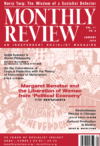
The coup against the Bolivian government under Evo Morales came straight out of the latest political-military manuals of the U.S. imperial state. These manuals provide instructions on how systematically to undermine the reputation of a popular, elected leader with accusations of dictatorship, corruption, and various other forms of character assassination in order to soften support on the left. Moreover, these manuals provide step-by-step instructions on how to prepare the political and military bases of a coup. | more…
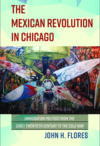
In The Mexican Revolution in Chicago: Immigration Politics from the Early Twentieth Century to the Cold War, John H. Flores illustrates the growth of the Mexican population in 1920s Chicago and how migrant communities situated and organized themselves politically in an often-hostile social environment. Drawing from political experiences in Mexico, Flores identifies and explores the evolution of a Mexican population whose identities and loyalties were shaped and divided by the Mexican revolutionary and counterrevolutionary processes in la patria (the homeland). | more…
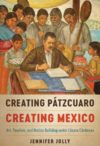
As part of a deconstruction of national identity, Jennifer Jolly, in her Creating Pátzcuaro, Creating Mexico: Art, Tourism, and Nation Building under Lázaro Cárdenas, analyzes the tourist town of Pátzcuaro in the west-central Mexican state of Michoacán as a microcosm of cultural power in which tourism, art, history, and ethnicity were woven together under the presidency of Lázaro Cárdenas del Río (1934–40). | more…

From the mid-1960s to the late 2000s, the number of people locked in U.S. prisons and jails, and forced onto parole or probation, increased from less than eight hundred thousand to more than seven million. From the beginning, this explosive growth, known commonly as mass incarceration, has been about containing, stigmatizing, and exploiting the poorest sectors of the working class. While an important prison reform movement has been underway for many years, private forces have attempted to co-opt this movement and have implemented and profited from alternative forms of mass coercion proliferating throughout society. | more…

Why, asks Pem Davidson Buck, is punishment so central to the functioning of the United States, a country proclaiming “liberty and justice for all”? The Punishment Monopoly challenges our everyday understanding of American history, focusing on the constructions of race, class, and gender upon which the United States was built, and which still support racial capitalism and the carceral state. After all, Buck writes, “a state, to be a state, has to punish … bottom line, that is what a state and the force it controls is for.” | more…

Marge Piercy is the author of many books of poetry, most recently Made in Detroit. | more…

In Bill Fletcher Jr.’s first novel, The Man Who Fell from the Sky, the sleepy Cape Cod town of Osterville has blood on its hands. In this murder mystery, Fletcher digs through layers of racism in Southern Massachusetts to uncover more than the killer’s identity. The novel compellingly exposes the racism of society, turning its victims against each other. | more…
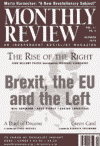
New issue of Monthly Review! If there is one thing that is clear about the economic situation in the mature capitalist economies, as we write these notes in mid-August 2019, it is that the financial world is increasingly running scared and looking for safe havens, worrying about the storm clouds ahead. There is now little doubt that the world economy is on the verge of a recession after a long sluggish recovery from the Great Financial Crisis of 2007-09. In itself this should not give occasion to surprise. In this instance, however, there lurks a bigger fear, the possibility of a financial Armageddon on the level of the Great Financial Crisis of 2008—or worse. | more…

A new poem by Kenneth Salzmann, author of The Last Jazz and Other Poems. | more…
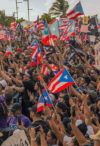
Naomi Klein’s The Battle for Paradise (Haymarket, 2018) describes a duel of dreams for post-Hurricane Mar’a Puerto Rico. On the one hand, networks of resistance and resilience sprang up around the island in the wake of the collapse of not just trees and houses, but infrastructure and government. On the other, a small group of super rich speculators and futurists were poised to cash in on what Puerto Rico’s then-Governor Ricardo Rossell—ó described as an opportunity to “sort of restart and upgrade” a nation he shamelessly called a “blank canvas.” Rossell—ó— was forced out of office on July 24, 2019, by mass protests, in large part thanks to the networks of resistance and resilience that came to life when the government essentially disappeared after the 2017 hurricanes. | more…











